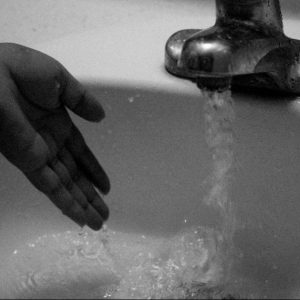The Stream, January 8: China Sees Improvement of Surface Water Quality in 2018
The Global Rundown
The overall quality of China’s surface water improved in 2018, but pollution worsened in some areas. Tests of groundwater around U.S. military bases in Georgia show extensive contamination from toxic firefighting foam. Local officials in Queensland, Australia, call for more government relief as the state enters its seventh year of drought. Aid agencies work to improve water access among Rohingya refugees in Bangladesh. Solar-powered water pumps proliferate in rural Kenya.
“I used to spend the whole day fetching water. I could not do anything else for the day because of tiredness.” –Grace Kaari, a farmer in eastern Kenya, in reference to gathering water at a river 12 kilometers (7 miles) from her home. Now, Kaari and thousands of others in rural Kenya are enjoying the benefits of solar-powered water pumps. With the help of aid groups and local governments, the pumps are being installed in communities across the country. Reuters
Latest WaterNews from Circle of Blue
HotSpots H2O: Water Conflicts to Watch in 2019 — Water will continue to be intertwined with social and political tensions in 2019. Read about five water-related hot spots to watch this year.
What’s Up With Water – January 7, 2019 — This week’s edition of What’s Up With Water includes coverage on: a controversial Michigan pipeline, an update on the Grand Ethiopian Renaissance Dam, and California’s first snow survey of the year.
By The Numbers
1,940 Surface water samples taken across China in 2018. Seventy-one percent were considered suitable for human consumption, up by 3.1 percent from 2017. Despite the improvements, water quality did worsen in some rivers and lakes in northeastern China. Reuters
7 years Length of time that some regions of Queensland, Australia, have been experiencing drought. Nearly 60 percent of the state, Australia’s second-largest by land area, is currently in the midst of drought. Local farmers and businesses are struggling to cope with the lengthy drought, and Queensland officials say more government aid is needed. Voice of America
Science, Studies, And Reports
Per- and polyfluoroalkyl substances, or PFAS, was recently detected in groundwater near three U.S. Air Force bases in Georgia that utilized toxic firefighting foam in the past. The Air Force says water around the bases is safe to drink, but experts argue that the military failed to conduct thorough tests of groundwater in surrounding areas, which show high levels of contamination. The Air Force claims that its response is constrained due to a lack of federal regulations for PFAS. The New York Times
In context: Fear and Fury in Michigan Town Where Air Force Contaminated Water.
On The Radar
The UNHCR, the UN Refugee Agency, and other aid groups are combating water shortages in Bangladesh’s Rohingya refugee camps. Water in the camps is scarce and often polluted, but humanitarian organizations are partnering with refugees to build solar and other sustainable water technology, along with improving knowledge about clean water and proper sanitation. UNHCR
In context: HotSpots H2O: Rohingya Refugees Face Uncertain Return Home.
Kayla Ritter is a recent graduate of Michigan State University, where she studied International Relations and Teaching English to Speakers of Other Languages. She is currently based in Manton, Michigan. Kayla enjoys running, writing, and traveling. Contact Kayla Ritter







Leave a Reply
Want to join the discussion?Feel free to contribute!